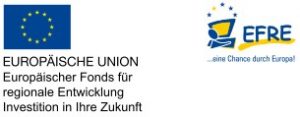Pulse-shape based flow cytometry and cell sorting
April 26th, 2019Nearly 2 million people in Germany suffer from inflammatory rheumatic diseases, including 20,000 children. In order to understand the causes of these diseases, measurement methods are necessary that detect and identify pathological changes in cells in a robust manner.
Until now, such investigations have often been carried out using flow cytometry methods, which always require complex sample preparation and the staining of the cells to be investigated with cell-specific molecules. The required procedures and reagents can have undesired effects on the cells, e.g. activation, influencing immunophenotypic features, cell permeabilization, cell loss or apoptosis (Greve et al., 2006; Smiljanovic et al., 2012; Westendorf et al., 2014). Furthermore, currently available flow cytometers have limitations with regard to the number of measurable parameters, measurement accuracy, sensitivity, comparability and reproducibility as well as stability of the measurement (Giesecke et al., 2017; Wang et al., 2017).
Within the research project “Pulse shape based flow cytometry and cell sorting” (PULZY) both points shall be addressed by a novel analysis method of pulse shape based flow cytometry. It shall be investigated whether cells can be identified by means of a pulse shape analysis of the scattered light signals, whether a quality improvement of the data can be achieved in combination with conventional flow cytometry and under which conditions a label-free cell analysis and cell sorting can be carried out.
Project partner:
APE Angewandte Physik & Elektronik GmbH, German Rheumatism Research Center (DRFZ)
Project funding:



